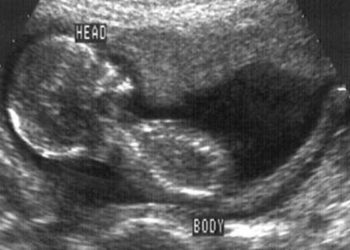Surgery better than physiotherapy alone for stress urinary incontinence
Image: PD
1. Compared to physiotherapy, surgery achieved significantly greater rates of symptomatic improvement and cure of stress urinary incontinence at 12 months.
2. Women who started with physiotherapy, but then elected for surgery had the same outcomes as women who were initially treated with surgery.
Evidence Rating Level: 1 (Excellent)
Study Rundown: Stress urinary incontinence (SUI) refers to leakage of urine that is associated with physical exertion, coughing, or sneezing. Since the underlying cause of SUI is weakened pelvic floor muscles, physiotherapy to strengthen those muscles is generally the initial therapy. Surgical interventions are also available including the minimally invasive midurethral sling procedure. This study compared physiotherapy versus midurethral sling surgery as initial treatment of moderate to severe SUI.
Significantly higher rates of cure at 12 months were achieved with surgery compared to physiotherapy. 85.2% of women in the surgery group reported that they no longer experienced urine leakage with exertion, coughing, or sneezing at 12 months compared to only 53.4% in the physiotherapy group. Women in the physiotherapy group were allowed to elect for the sling procedure if they were dissatisfied with physiotherapy alone. Almost half of the women in the physiotherapy group ultimately opted for surgery during the trial. These women are included in the 53.4% cure rate for the physiotherapy group. Of the women who received physiotherapy only, the cure rate was 15.9%.
This study makes it clear that surgery is more likely to relieve symptoms of SUI than physiotherapy alone. However, the data presented does not discount a trial of physiotherapy before surgery. First, physiotherapy alone did produce subjective cure for some women. Second, there were no adverse effects from physiotherapy. Third, the women from the physiotherapy group who elected for surgery had equivalent outcomes as the women who were initially treated with surgery. Taken together, these results suggest that a trial of physiotherapy before surgery is reasonable since it may be curative for some women, carries no risk of adverse events, and does not affect the outcome of surgery undertaken at a later date.
Click to read the study, published today in NEJM
Relevant Reading: Pelvic floor muscle training versus no treatment, or inactive control treatments, for urinary incontinence in women
In-Depth [randomized, controlled trial]: In this randomized, controlled trial, 460 Dutch women were assigned to either the physiotherapy or surgery group. Within the assigned groups, 215 women underwent midurethral sling surgery and 202 began pelvic floor muscle training. During the trial period, 99 women in the physiotherapy group elected for surgery. The primary outcome was subjective improvement of incontinence symptoms. Subjective and objective cure rates were secondary outcomes. The rate of subjective improvement was significantly higher in the surgery group (90.8% vs. 64.4%; absolute difference, 26.4 percentage points; 95% CI, 18.1 to 34.5). Surgery also resulted in higher rates of both subjective and objective cure (subjective cure: 85.2% vs. 53.4%; objective cure: 76.5% vs. 58.8%). There were 65 adverse events in the study, all associated with surgery. Serious adverse events included intra-operative bladder perforations (6 events) and repeat operations (7 events). Eighteen women also developed another form of incontinence after surgery.
By Tomi Jun and Adrienne Cheung
More from this author: Early risk factor for progression of cystic fibrosis identified, Gut microbes implicated in stroke and heart attacks: new dietary link, New leukemia mutation offers therapeutic targets, Childhood ADHD associated with increased risk of suicide, A marker of aggressive liver cancer and potential therapeutic target identified
© 2013 2minutemedicine.com. All rights reserved. No works may be reproduced without expressed written consent from 2minutemedicine.com. Disclaimer: We present factual information directly from peer reviewed medical journals. No post should be construed as medical advice and is not intended as such by the authors, editors, staff or by 2minutemedicine.com. PLEASE SEE A HEALTHCARE PROVIDER IN YOUR AREA IF YOU SEEK MEDICAL ADVICE OF ANY SORT.





